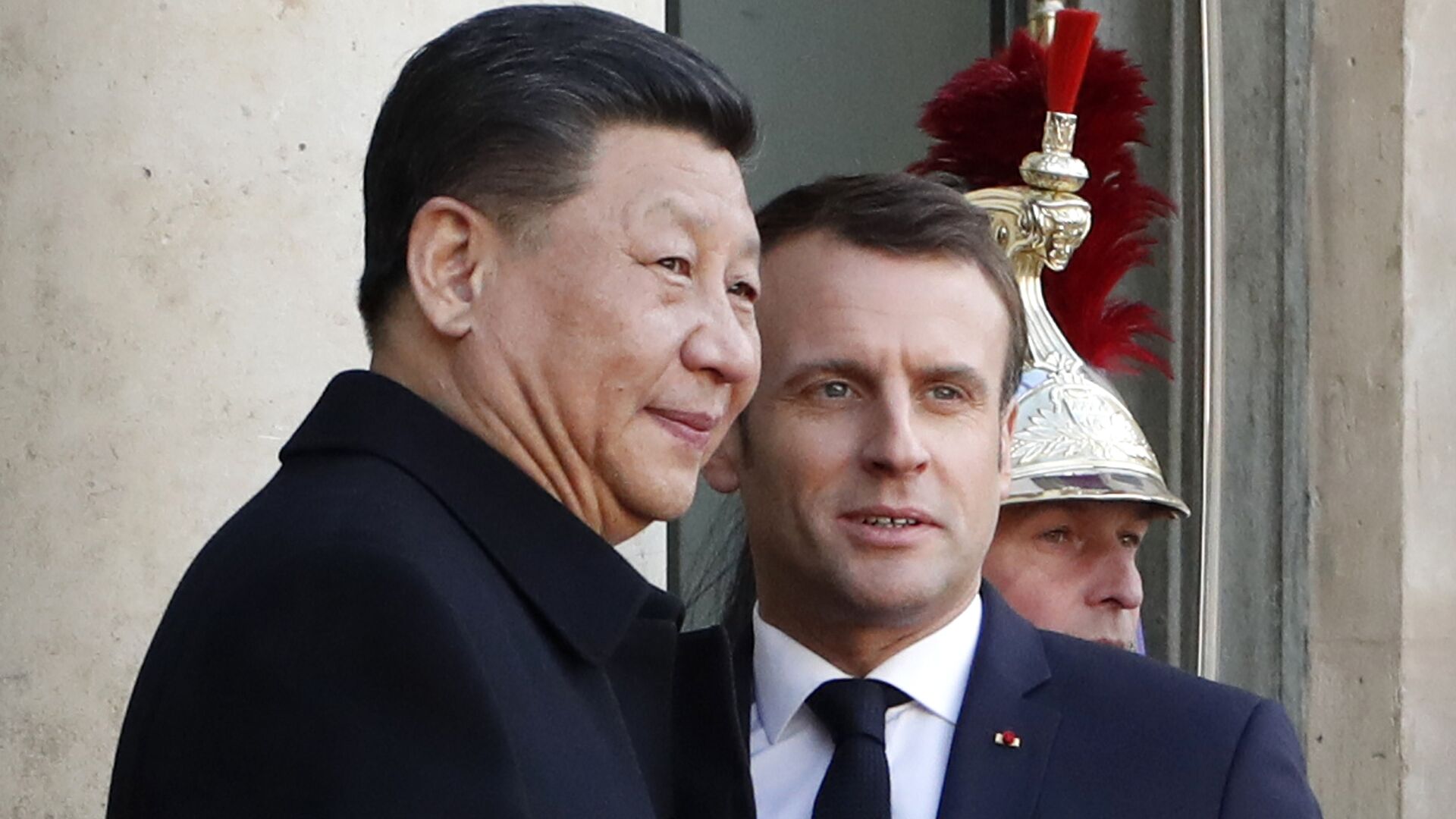Macron, Xi Pledge to Deepen Cooperation as EU-China Investment Deal Remains in Limbo
22:11 GMT 17.02.2022 (Updated: 17:14 GMT 12.04.2023)

© AP Photo / Thibault Camus
Subscribe
During a Wednesday phone call with Chinese President Xi Jinping, French President Emmanuel Macron said he hoped the European Union’s stalled investment deal with China would be fully ratified amid other pledges to expand their cooperation in economic and other spheres.
During the call, Xi noted that since France has taken over the rotating chair of the European Union, it has made efforts to enhance solidarity within the bloc and strengthen Europe’s strategic autonomy, according to a readout from the Chinese Foreign Ministry. He added that Beijing stands ready to work with France to make the forthcoming China-EU summit a success and deepen their cooperation on many levels.
Macron noted that the turbulent international situation has made a deeper comprehensive strategic partnership with China more desirable, and that he was satisfied with the two nations’ achievements in cooperation in technological, agricultural, and engineering fields, including on nuclear energy.
He added that he would do everything he could to push a positive agenda in the EU in its relations with China and expressed his hope for progress in the ratification and implementation of the Comprehensive Agreement on Investment (CAI) with China that stalled last year. The deal is intended to put EU companies on an equal footing with their Chinese counterparts and solidify China’s status as a trading partner for the bloc.
“I think it will be a huge signal of high-level consensus for both China and the EU… to further promote the entry into force of the China-EU bilateral investment agreement,” Wang Huiyao, founder and president of the Center for China and Globalization in Beijing, told the South China Morning Post.
The European Parliament froze ratification of the CAI in May 2021 after Beijing sanctioned 10 EU politicians, as well as think tanks and diplomatic entities, in response to sanctions imposed against China by the US, EU, UK, and Canada over alleged human rights abuses in Xinjiang.
EU lawmakers said China must lift the sanctions if it wants the CAI to be ratified, but so far, Beijing has not backed down on what it considers to be an internal matter. However, Chinese State Councilor and Foreign Minister Wang Yi said in the weeks prior to the EP’s move that Beijing would continue to push forward its own ratification of two clauses against forced labor by the International Labor Organization’s convention on forced labor.
The ITO’s 2022 report on the application of international labor standards, published last week, claims China engages in discriminatory employment practices in Xijiang and uses forced labor.
There have been several attempts to revive the ratification process in the last 9 months, including the chief diplomats of four European nations flying to Beijing to meet with Wang, and China has repeatedly pleaded with Paris and Berlin, which are perceived as warmer to the CAI, to restart the ratification process.
According to Politico, which cited senior EU diplomats, the China-EU summit is scheduled to be held online on April 1.
According to Xinhua News Agency, Xi and Macron also agreed to push cooperation on agricultural technologies and trade, to deepen their green manufacturing partnerships, and to take measures to ease the incorporation of French banks into the RMB Cross-Border Inter-Bank Payments System, China’s burgeoning bank wire system that is being presented to much of the world as an alternative to the Brussels-based SWIFT.
